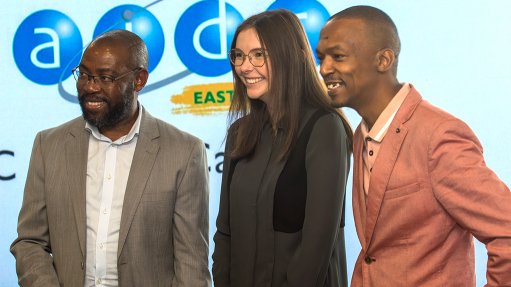
Thabo Shenxane, Beth Dealtry and Tshetlhe Litheko
The development of a regional five-year masterplan to nurture the engineering skills needed to support manufacturing in South Africa as the automotive industry transitions to future mobility, including electric vehicles (EVs), has started, says the Automotive Industry Development Centre Eastern Cape (AIDC EC).
Shaped by policy makers, educational institutions, skills development practitioners and automotive industry role-players, and led by the AIDC EC, the masterplan framework identifies the key elements of a common, integrated engineering offering from high school to the institutions of higher learning in the Eastern Cape.
The Eastern Cape houses several vehicle manufacturers, including Mercedes-Benz, Volkswagen, Isuzu, Ford and FAW, and contributes 38% of South Africa’s total vehicle production and 50% of its exports.
“It is essential that we work closely with our manufacturers so that the projected employment opportunities presented by a reshaped value-chain for new-energy vehicles are exploited by locally skilled candidates,” says AIDC EC CEO Thabo Shenxane.
The province needs to “refine its budgeting and focus, among other priorities, on an integrated engineering skills masterplan with urgency”.
National Association of Automotive Component and Allied Manufacturers (Naacam) knowledge services project manager Beth Dealtry says Naacam’s vision for the masterplan will be to ensure that a lack of skills is not a barrier to transformation, localisation and inclusion in the next five years.
“In the context of an anticipated global shortage of skills around new energy vehicles, the masterplan will play a critical role in growing and transforming South Africa’s automotive sector.”
Shenxane says a number of immediate projects will be implemented in the Eastern Cape as part of the development of the masterplan.
These are the drafting of a schedule of EV training courses to be offered to automotive role-players and students; the inclusion of e-mobility in the engineering curricula at both higher educational institutions and technical and vocational education and training (TVET) colleges in the province; talking to vehicle manufacturers about donations to TVET colleges of equipment that is required by these institutions as they deliver their curricula to students; and the upskilling of existing lecturers, both at universities and TVET colleges.
“The transition in vehicle technology to e-mobility requires a revolution in automotive manufacturing, aftermarket and support processes, and that, in turn, demands a different skills-set,” explains Shenxane.
“Without those skills South Africa’s automotive manufacturing sector will be severely threatened, along with the Eastern Cape economy.”
Naamsa | The Automotive Business Council transformation and public policy executive Tshetlhe Litheko says the rise of electric and new energy vehicles has forced the automotive sector to rethink its approach to production.
Naamsa expects that 40% of all European vehicle sales will be EVs by 2030, which could cost the South African automotive industry billions in export earnings a year should it not transition to EV manufacturing in time.
No battery electric vehicles are currently produced in South Africa.